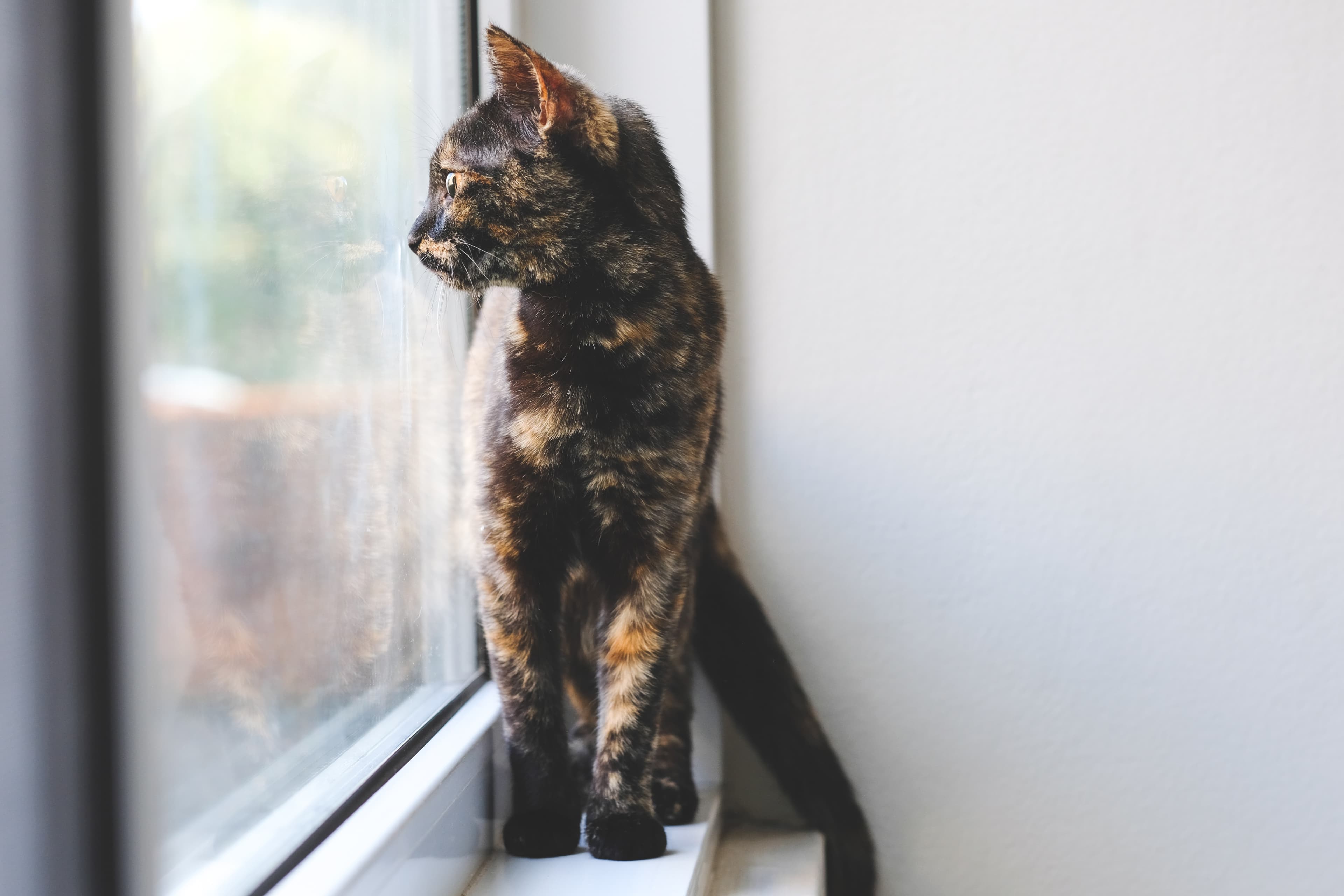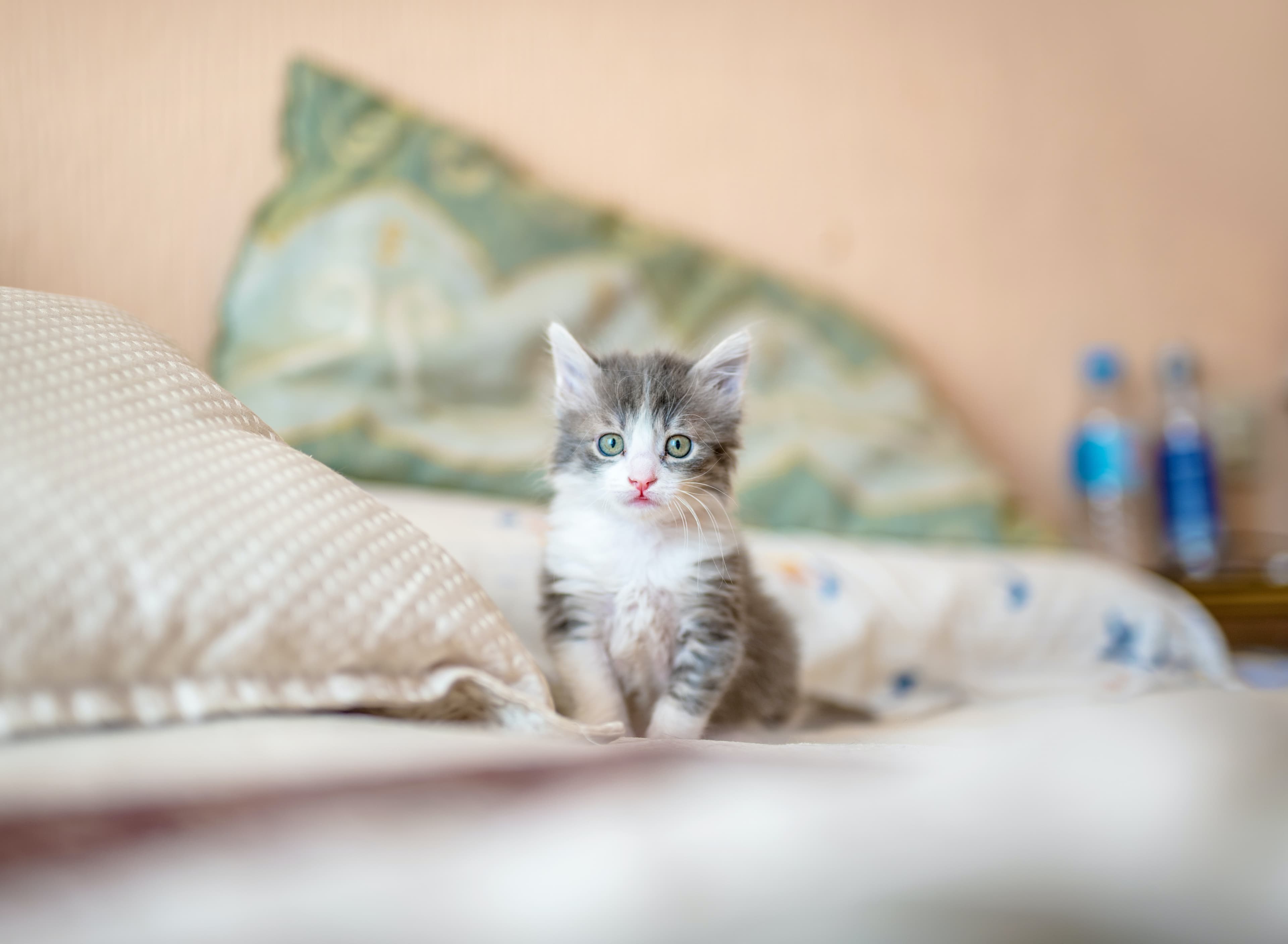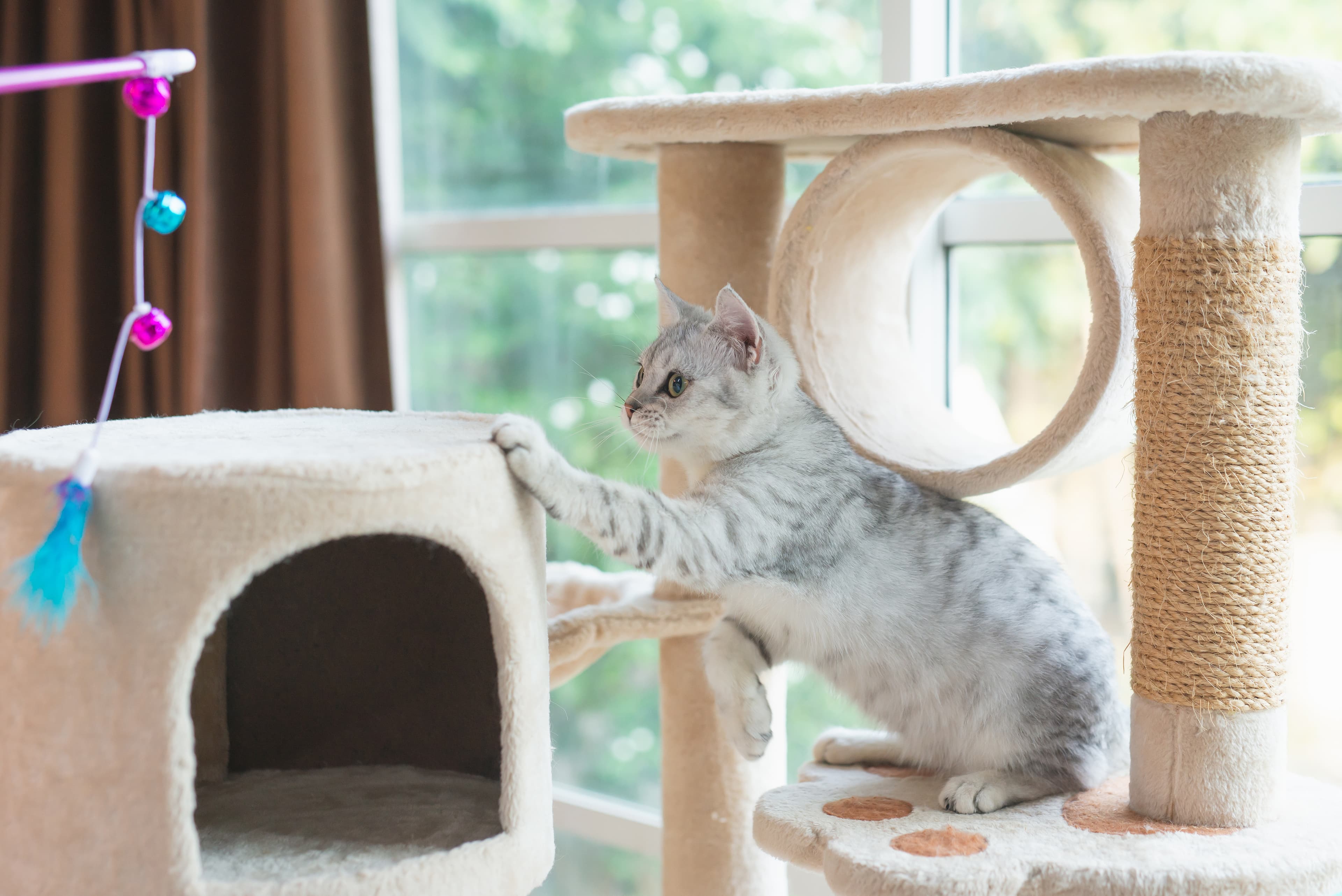Stressed cats
It might seem unlikely, but cats can get stressed, just like us. Long-term stress can make them feel unwell, both mentally and physically. The good news is, as a cat owner, there are several ways you can help prevent this.
Different types of stressAs a cat owner, it's important to know the difference between temporary and long-term stress. A temporary fright, anxiety or stress isn't dangerous. For example, this could be if your cat is startled by an animal or object, or feels anxious due to something happening at home.
Long-term stressIt's when stress lasts for a longer period that it can cause problems. Cats aren't naturally equipped to cope with prolonged stress in the same way they are with temporary stress. This can lead to them feeling unwell, behavioural issues or even illness.
If your cat is exposed to stressors over a long period, it's not uncommon for them to develop stress-related bladder inflammation, lick their fur excessively, or urinate in the wrong place. Whatever the behaviour or cause, it's important to address it to help your cat feel like themselves again.
How do I know if my cat is stressed?As we've mentioned, there's a big difference between temporary and long-term stress in cats. Long-term stress often develops gradually, making it harder to spot. Symptoms can vary depending on your cat's personality and how the stress started, showing up in everything from behaviour changes to shifts in routine. However, here are a few things that might indicate your cat is stressed.
Common signs of stress
Excessive grooming, licking, or cleaning of fur
Urinating or defecating inside the home
Appearing more aggressive
Reduced interest in playing
Withdrawing from you or becoming overly dependent
What can I do to reduce stress?Stress in cats can be tricky to detect, especially when it's long-term and the symptoms are subtle or develop slowly. It’s often linked to something in the cat's environment.
There are several things you can do to help your cat overcome stressful behaviour. Here are our top tips to counteract and reduce stress in cats:
Tips to reduce stress in cats
Ensure each cat has its own food bowl, litter box, and resting places to avoid competition.
Make sure your cats have enough personal space and don't have to crowd each other.
Maintain a consistent daily routine so your cat knows what to expect.
If your cat retreats to its own space, leave it be. Indoor cats should have plenty of toys and activities to keep them stimulated.
For outdoor cats, allow them to decide for themselves when they want to be inside or outside.
Cats often feel better when they have opportunities to climb and move both vertically and horizontally.






